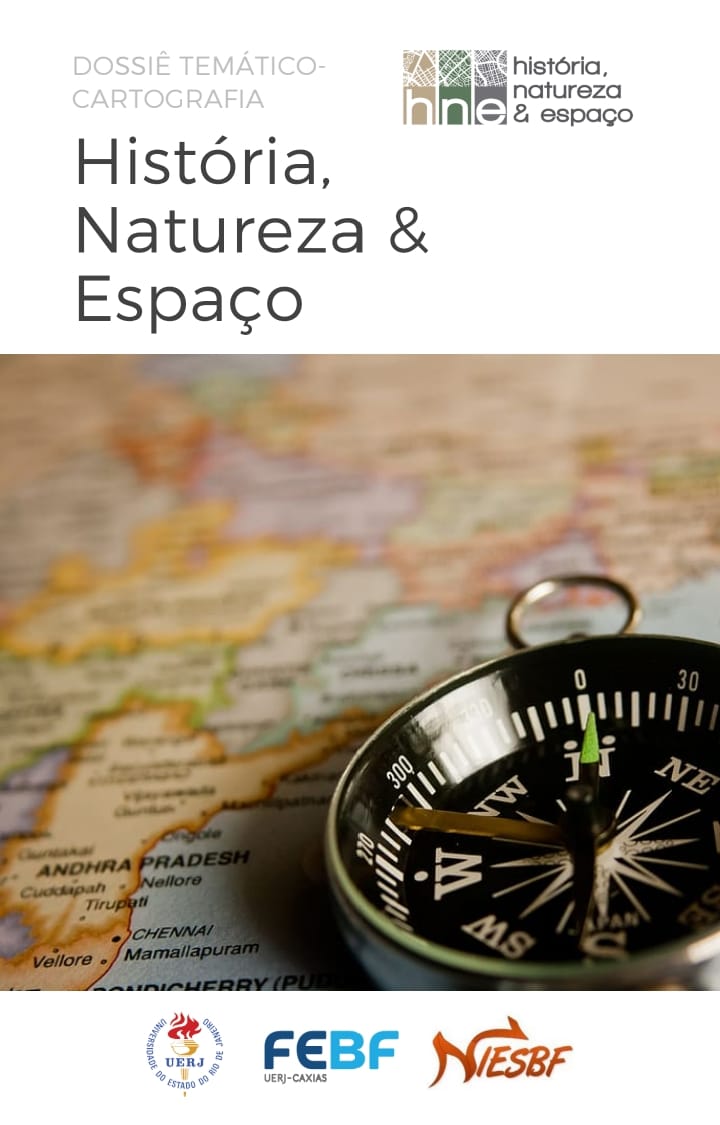CARTOGRAFIA ESCOLAR E EFICÁCIA PARA APRENDIZAGEM –
DESAFIOS, EXPERIÊNCIAS E INCLUSÃO
DOI:
https://doi.org/10.12957/hne.2022.79800Resumen
O presente artigo é a expressão escrita da palestra realizada em 05 de dezembro de 2022, na abertura do XII Colóquio de Cartografia para Crianças e Escolares (CCCE) na Universidade Federal de Santa Maria (UFSM), Rio Grande do Sul, tendo como temática “As (Geo)Tecnologias e as (múltiplas) Cartografias Escolares na contemporaneidade”. Para esta fala optou-se em questionar qual educação queremos para o futuro, diante aos desafios que a humanidade vivenciou frente a uma pandemia, e que a educação se mostrou frágil e despreparada diante a esta realidade, principalmente na questão das tecnologias de informação, comunicação, na relação humana e educação inclusiva. E ensinar também se tornou um desafio, quando se disputa a atenção dos estudantes com seus telemóveis na era do Instagram, Tik-Tok, entre outros, tendo que buscar referências teóricas e metodológicas em outras áreas do conhecimento como psicologia e neurociência para efetivação da aprendizagem. Em função deste questionamento, o artigo apresenta além do subsídio teórico, algumas experiências da autora na sua prática pedagógica na Cartografia Escolar e Tátil com base na etiologia, etimologia e contextos históricos de elementos e conteúdo da Cartografia Visual e Tátil, usando-se da contação de história, com apoio das pesquisas desenvolvidas no Laboratório de Cartografia Tátil e Escolar (LabTATE), que proporcionou o desenvolvimento da Metodologia LabTATE, assim como o Protocolo Inclusão (PI), demonstrando sucessos e desafios no processo educacional. O PI foi desenvolvido também em função da experiência do Curso de Graduação de Geografia, da Universidade Federal de Santa Catarina (UFSC) na formação da primeira estudante com deficiência visual (EDV) como bacharela e licenciada. O protocolo destaca aspectos de ordem administrativa, acolhimento fraternal, tutoria, elaboração de recursos didáticos, avaliação e tem como premissa o modelo social de deficiência, que defende o conceito de “exclusão zero”, consistindo na inclusão de todas as pessoas, fundamentada nos conceitos dos direitos humanos e oportunidades iguais. Concluímos que a educação além da promoção do conhecimento, não podemos perder a dimensão da educação para a paz, respeitando as diferenças, visando eliminar todos os preconceitos, inclusive o capacitismo.
Descargas
Descargas
Publicado
Cómo citar
Número
Sección
Licencia
Derechos de autor 2023 Rosemy da Silva Nascimento

Esta obra está bajo una licencia internacional Creative Commons Atribución-NoComercial-SinDerivadas 4.0.
Direitos Autorais para artigos publicados nesta revista são do autor, com direitos de primeira publicação para a revista. Em virtude da aparecerem nesta revista de acesso público, os artigos são de uso gratuito, com atribuições próprias, em aplicações educacionais e não-comerciais.
